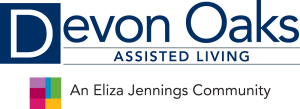Treating Alzheimer’s and Dementia Patients with SAIDO Learning
Mimi Vanderhaven Article
Published: 05/12/2014
by Patricia Nugent
A pioneering treatment to improve the symptoms of Alzheimer’s and dementia has been introduced to the United States here in Cleveland by the Eliza Jennings organization. And as part of its patient-centered mission to improve the lives of older adults in the community, starting this month SAIDO Learning will be available to non-residents of Eliza Jennings communities.
Originating in Japan 12 years ago, SAIDO (which means “again” in Japanese) is a series of exercises in reading, writing, and arithmetic designed to stimulate the prefrontal cortex of the brain in each Learner. Known as the “transfer effect,” people’s brain’s are triggered for more sophisticated knowledge when put through rote learning exercises.
The 18 levels are scientifically designed for the Learner to get 100% correct. As they go along the Supporter gives praise and encouragement, which further stimulates this area of the brain, and the Learner advances to the next level. No matter the level of dementia impairment or stage of progression of Alzheimer’s, this non-pharmacological treatment has produced remarkable results, from improved memory function, such as remembering names and phone numbers, to a more engaged level of conversational interaction. Almost immediately after going through SAIDO Learning sessions, people who previously would not take part actively in conversations began to express opinions.
“When we first were approached by the Kumon program in Japan about SAIDO Learning, I’ll have to admit I was skeptical about the results,” says Eliza Jennings president and CEO Deb Hiller. “We went to a presentation in which they spotlighted a woman who was bedridden and unable to speak who went through SAIDO Learning and was able to spend her last years speaking and writing. It was amazing. I knew right away I wanted to be the force to bring this to our country.”
Osaka-Bound
Before she knew it, Deb was on a plane to Japan for a fact-finding trip to learn firsthand about SAIDO Learning, and to make sure that the two organizations and cultures could work together. The trip was a success and Eliza Jennings was selected to participate in the research trial in 2011. Within its intervention group, 22 of 23 residents showed improvements. Following the successful trial they were granted the master license. To date, Japan and the United States are the only countries in the world that offer SAIDO Learning.
Deb notes that the concept of SAIDO Learning perfectly dovetails with the Eliza Jennings focus of patient-centered care. “What makes SAIDO Learning such a new shift in the paradigm is that it treats Alzheimer’s with a positive therapy, rather than just chronicling the decline of the patient. Unlike brain fitness programs to improve cognitive skills, SAIDO Learning is a treatment for older adults with mild to severe cognitive impairment.”
Deb and her staff began to offer SAIDO Learning in the adult day program called the SAIDO Learning Center. They are just beginning to partner with programs in Cincinnati and Seattle.
SAIDO Learning takes place with one Supporter and most often two Learners in 30-minute sessions five days a week. According to Minni Nair, executive director for the SAIDO Learning Center, the five-times weekly consistency is a key component of the program. Much like physical exercise, SAIDO Learning is a lifelong treatment to maintain the highest level of improvement.
Unlike traditional adult day programs that focus on care and passive interaction, the SAIDO Learning Center offers the person with dementia or Alzheimer’s the opportunity to participate in a treatment and to actively engage in enrichment programs that have been proven to improve their symptoms. “Everything we do is supported throughout the day to enhance the SAIDO Learning session,” says Minni.
Currently SAIDO Learning coincides with a full-day program, but she notes that in the future, Eliza Jennings will offer half-day programs to meet the needs of busy older adults with mild impairments.
Reduction in Health Care Costs
According to the Alzheimer’s Association, people with dementia cost our government 19 times more to care for than people without dementia. “So when you think about how much improved cognitive capabilities save within this country, SAIDO Learning is hugely impactful,” she says. “There is a noticeable reduction in the amount of care people require. And the program itself is not cost prohibitive. It’s affordable.”
The trials went well, with about 100 older adults going through the program since last summer. They decided to rename their Acacia Place facility the SAIDO Learning Center of the Eliza Jennings Health Campus and make its main focus SAIDO Learning. This month, they are opening the program up to non-residents. Anyone in the community can take part in SAIDO learning.
Touching Tales of Success
“Saying to a person with dementia that we think you will improve if you try this program is a message they have never heard,” says Deb. And the improvement of memory that has been long since gone can be emotional for the families. Minni has seen firsthand the magical transformation. “After years of partaking in one-way conversations with her mother, a daughter was shocked and moved to tears when her mother asked her how her day was after experiencing SAIDO Learning sessions,” Minni says.Another success story is a worried son who had grown anxious of his mother’s carelessness with bills. She had been throwing them out and they weren’t getting paid. He was amazed when she asked him to remind her to pay a bill she had set aside when she returned home.
The SAIDO Learning Center of Eliza Jennings Health Campus is located at 10603 Detroit Avenue in Cleveland. If you are interested in signing up for the program or have more questions, call 216.226.6090 or visit www.elizajennings.org/SAIDO/. Transportation is available.
